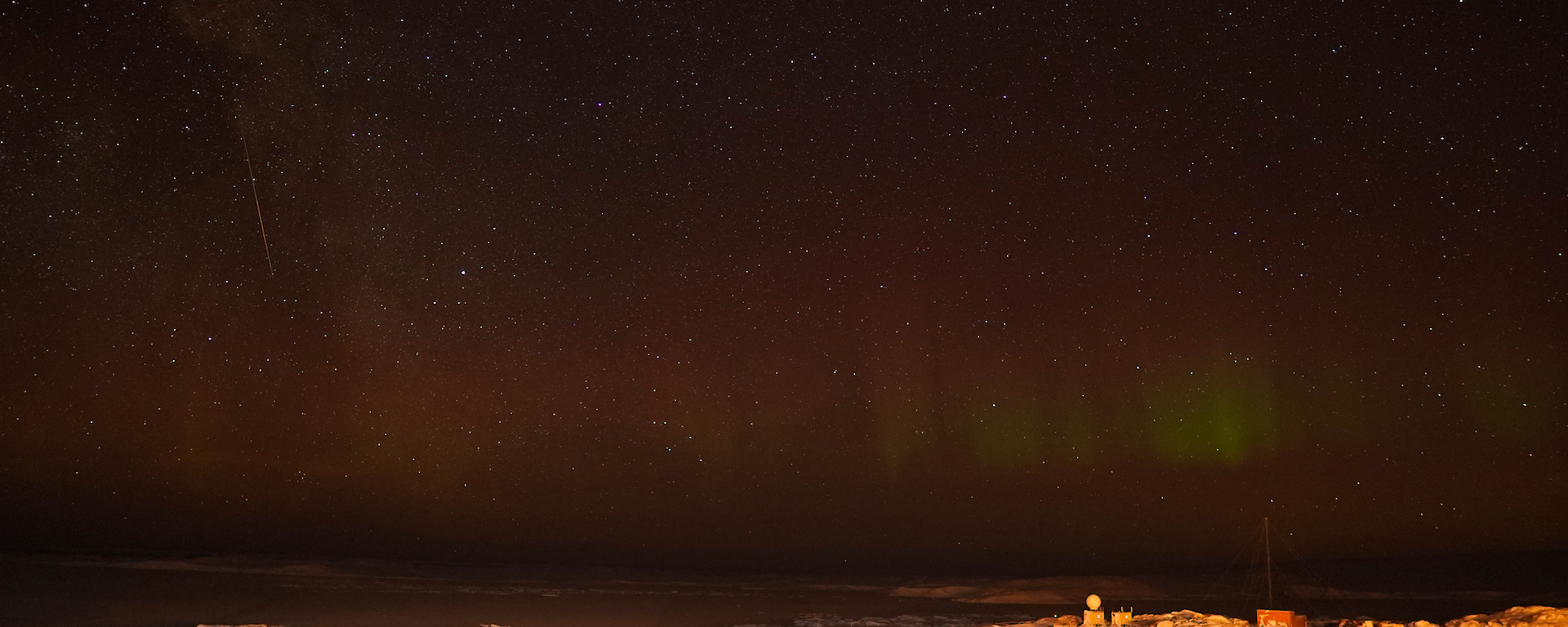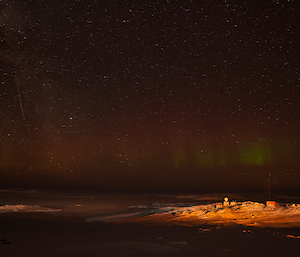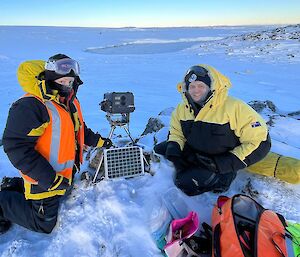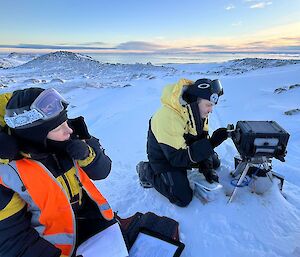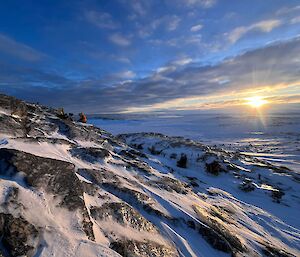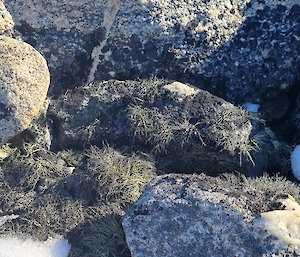Life of a Comms Tech at Casey Station
A Communications Technical Officer at Casey Station is a jack of all trades. If it turns on, has lights, makes noise, keeps someone entertained or talks to space, we can expect to look at it at some stage. With the responsibility of maintaining critical communications infrastructure our role also allows us to visit places where few people are allowed to go.
With two of us Comms Techs on station – Daniel (me) and Kim – our primary role begins with maintaining satellite, radio and computer systems on station. We also maintain radio for on-continent communications between members around the station and out in the field, and satellite and computer systems to maintain contact back to Australia for work, friends and family.
With limited personnel at the station over the winter we also take on the role of IT Administrators and Comms Operators, which are usually filled positions over the busy summer period. We often get asked by station members for help with personal computer issues or ensuring the projectors and tv/sports streaming services are working up to a standard to keep us entertained during the long winter nights. We often accept payment for these tasks in the form of coffee.
We are extremely privileged that our role allows us to be heavily embedded in the science programs – programs like moss data retrieval and nesting bird cameras which happen in Antarctic Specially Protected Areas (ASPA). These are designated areas on the continent where very few people are allowed to go, in order to preserve the environment such as moss beds that are hundreds of years old and bird nesting areas. It's an absolute privilege to be able to visit some of these areas and admire the beautiful scenery that very few have walked before.
We also work closely with Geoscience Australia back in Canberra for whom we take weekly measurements of the earth's dynamic geo-magnetic field. These measurements are part of a national observatory network which collates data to be used as part of a global database. This data is used for scientific, industrial and engineering sectors such as compass and navigation for pilots, space weather monitoring, aligning satellite dishes and telescopes, mineral exploration, surveying and mapping to name a few.
Away from the usual work hours it's our own free time to do as we please, with regular groups going out at night to see the elusive aurora on a cloud-free Casey night or relaxing playing darts and pool in the bar or becoming a movie buff in the Odeon cinema. We have a strong board gaming group here and can often be found playing Catan, Wingspan or Civilization. Expeditioners often choose to learn new skills or take up old hobbies. I brought down a 3D printer that has allowed me to 3D print useful and sometimes not-so-useful things. I learned how to DJ this season when a fellow expeditioner ran a " how to DJ” class and I also ran some LAN gaming nights where we hook up our computers and play video games together.
Daniel Godlevsky
Senior Communications Technical Officer, Casey Station, Antarctica

